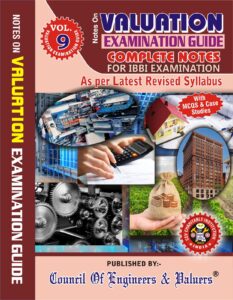Saturday Brain Storming Thought (227) 15/06/2024
PARTICIPATORY NOTE

PARTICIPATORY NOTES
Participatory Notes also referred to as P-notes or PNs, are financial instruments required by investors or hedge to invest in Indian securities without having to register with the Securities and Exchange Board of India (SEBI)
P-notes are among the group of investments considered to be Offshore Derivative Investments (ODIs)
Key Takeaways of Participatory Notes
1) Brokers and foreign institutional investors (FIIs) must register withe the SEBI
2) Participatory Notes allow non-registered investors to invest in the Indian market
3) Participatory Notes, referred to as P-notes or PNs, are derivative instruments of underlying Indian assets
4) Participatory Notes are popular investments due to the investor remaining anonymous
Participatory Notes introduction in India
SEBI
These notes are a unique Indian invention started in 2000 by SEBI to enable foreign corporates and high networth investors enter the Indian market without having to go through the process of registering as Foreign Institutional Investor
P-notes investment in India – statistical data
Year 2016-2017
Rs 1,78,437 Crore
Year 2017-2018
Rs 1,06,403 Crore
Year 2018-2019
Rs 78,110 Crore
April 2019 – October 2019
Rs 76,773 Crore
There is a declining trend in the investments in India
Reasons for declining P-notes
1) Uncertainty around inflation levels
2) Currency correction
Expectations of P-notes in the future
1) Equity markets are offering some attractive valuations at these levels
2) Supply-chain and inflation issues should begin to subside in the months to come
3) Markets usually move ahead of the economic cycle
4) It is believed that the next one/two quarters, FPIs should be coming back to allocating capital towards Indian equities
Characteristics of P-notes
1) Brokers and foreign institutional investors registered with SEBI issue a P-notes and invest on behalf of the foreign investors
2) Brokers must report their P-notes issuance to SEBI each quarter
3) The notes allow foreign investors with high net worth, hedge funds and the other investors to participate in the Indian market without registering with SEBI
4) This helps investors save time, money and scrutiny associated with direct registration
5) P-notes are also called Equity Linked Notes, Overseas Derivative Instruments, Participating Return notes and Capped Return notes etc
6) The investor in P-notes does not own the underlying Indian Security, which is held by FII
7) The investors in P-notes gain economic benefits by investing in the securities without actually holding them
8) The P-notes holders do not have any voting rights in relation to security/shares
Concern regarding P-notes
1) All these are issued outside of India, SEBI does not have full control over them
2) It is also alleged that most of the money invested through P-notes is unaccounted for money or black money
3) P-notes are also used for money laundering purposes which converts black money into white Money
4) SEBI has been successful in taking actions against FIIs who are non-complaint and those who have misreported offshore derivatives
5) SEBI has made it mandatory from January 2011 that all FIIs have had to follow KYC norms and submit details of transactions including P-notes, y in 2014
6) SEBI made it mandatory for those FIIs have had to follow KYC norms an submit details of transactions including P-notes
7) SEBI made it mandatory for those FIIs issuing P-notes to submit a monthly report disclosing their portfolios
Profits in P-notes
1) Whenever the price of the X Shares goes up, the investor will instruct the FII to sell them
2) FII after deducting the commission will return the principal and profit to the investor
3) Investors will return the P-note receipt to FII
4) FII will sell the P-note receipt to another foreign investor
Capital Gain Tax for selling P-notes
1) Mr A sells this P-note to Mr B at profit,
Mr A doesn’t need to pay CGT to the Indian government, because of anonymous identify the authority cannot trace them
2) The government will get CGT only once, when the said P-note owner instructs the FII to sell the shares from its Indian DEMAT account
Statements about P-notes
1) SEBI has classified three possible Categories of P-notes issuing FIIs in the country
2) Category I – are the offshore government entities/institutions investing solely on behalf of a country’s Central Bank
3) Category II – are the regulated entities as Mutual Funds supervised by their regulatory bodies in their countries of origin
4) Category III – entities not fall in I or Ii which have been recently asked by the SEBI not to issue P-notes
Anonymity in P-notes
Any entity investing in P-notes are not required to register with SEBI
It enables large hedge funds to carry out their operations without disclosing their identity
Ease of trading in P-notes
Trading through P-notes is easy because P-notes are like contract notes transferable by endorsement and delivery
Tax saving in P-notes
Some of the entities route their investment through P-notes to take advantage of the tax laws of certain preferred countries
Money Laundering in P-notes
P-notes are becoming a favourite with a host of Indian money launderers who use them to first take funds out of the country through hawala and then get it back using P-notes
Who invests in P-notes
1) Investors ineligible to apply for FII status
2) Choose not to apply for FII status because the P-note route is quick and easy
3) Investors, some of whom have FII status, to hide their identity
Investors, who to hide their identity
1) Prodigal Money Returning – A large number of politicians / bureaucrats / business – persons have accumulated wealth abroad
2) Foreign governments / entities who would like to acquire / control Indian entities by taking them over
3) Terror Financiers
P-notes Crisis of 2007 in India
1) On 16/10/2007, SEBI proposed curbs on P-notes which accounted for roughly 50% of FII investment in 2007
2) SEBI was not happy with P-notes because it is not possible to know who owns the underlying securities and hedge funds acting through P-notes might therefore cause volatility in the Indian markets
3) Proposals of SEBI were not clear and this led to a knee-jerk crash when the markets opened on the following day (17/10/2007)
4) Within a minute of opening trade, the Sensex crashed by 1744 points or about 9% of its value
5) This led to automatic suspension of trade for one hour
6) Finance Minister P. Chidambaram issued clarifications that the government was not against FIIs and was not immediately banning P-notes
7) on 22/10/2007, the SEBI chief, M. Damodaran held a long conference and announced that funds investing through P-notes were most welcome to register as FIIs, whose registration process would be made faster and more streamlined
8) The market welcomed the clarification with an 879 point gain on 23/10/2007
Advantages of P-notes
1) Around 45% of the total Investments in India are made through P-notes
2) Reducing transaction cost
3) Preferable for anonymous investors
4) Any entity can invest in the Indian stock market without having to register with SEBI
5) It offers an opportunity for large funds to continue their operations without having to disclose their identity
6) Some entities invest their funds through P-notes to take advantage of the tasks laws of certain preferred countries
7) P-notes are easily transferable through endorsement
8) Trading is easier through P-notes
Disadvantages of P-notes
1) Oftentimes P-notes have been used for the purpose of money laundering
2) The promoters of companies have been found using P-notes to bring back unaccounted money and as a means to manipulate the stock prices
3) Numerous studies have reflected the P-notes affect the stock markets adversely
Declining of P-notes
1) Tightening of regulations by SEBI
2) Global economic uncertainty
3) Domestic market volatility
Regulatory issues involved in P-notes
1) P-notes are not regulated by any entities in India
2) SEBI has no jurisdiction over trading in P-notes
3) Trading among FIIs is not recorded
COMPILED BY:-

Er. Avinash Kulkarni
9822011051
Chartered Engineer, Govt Regd Valuer, IBBI Regd Valuer











